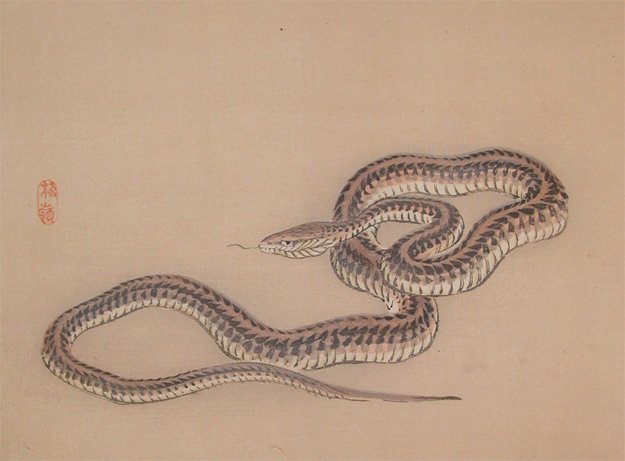We are now into summer by the traditional reckoning, and summer brings snakes. In the first half of 1690, recovering from his epic journey north, Bashō stayed at a hermitage offered to him by a student. The grass at this hermitage was very long and had many snakes and centipedes.
natsukusa ya ware sakidachite hebi karan
I will lead the way
in hunting for snakes
—Bashō
natsukusa ni fūki o kazare hebi no kinu
there is great wealth
snake skins
—Bashō


He wrote both of these the same day, putting them in a letter to another student in which he was inviting the student to come visit him. He had previous complaining about snakes around the hermitage to yet another student in another letter, but here he seems to be making light of the situation. Presumably finding a snake skin could be made into a nice gift or something to sell for money, and besides, just the act of hunting for them might prove fun. Or so he wanted his visitor to believe!
The kigo (season word) in both of these is "summer grass", but the second one also uses the kigo "snake skin", which is also a summer kigo (mid-summer for the last).
❦
 |
David LaSpina is an American photographer and translator lost in Japan, trying to capture the beauty of this country one photo at a time and searching for the perfect haiku. He blogs here and at laspina.org. Write him on Twitter or Mastodon. |
That is, me! If you like this translation, feel free to use it. Just credit me. Also link here if you can. ↩

